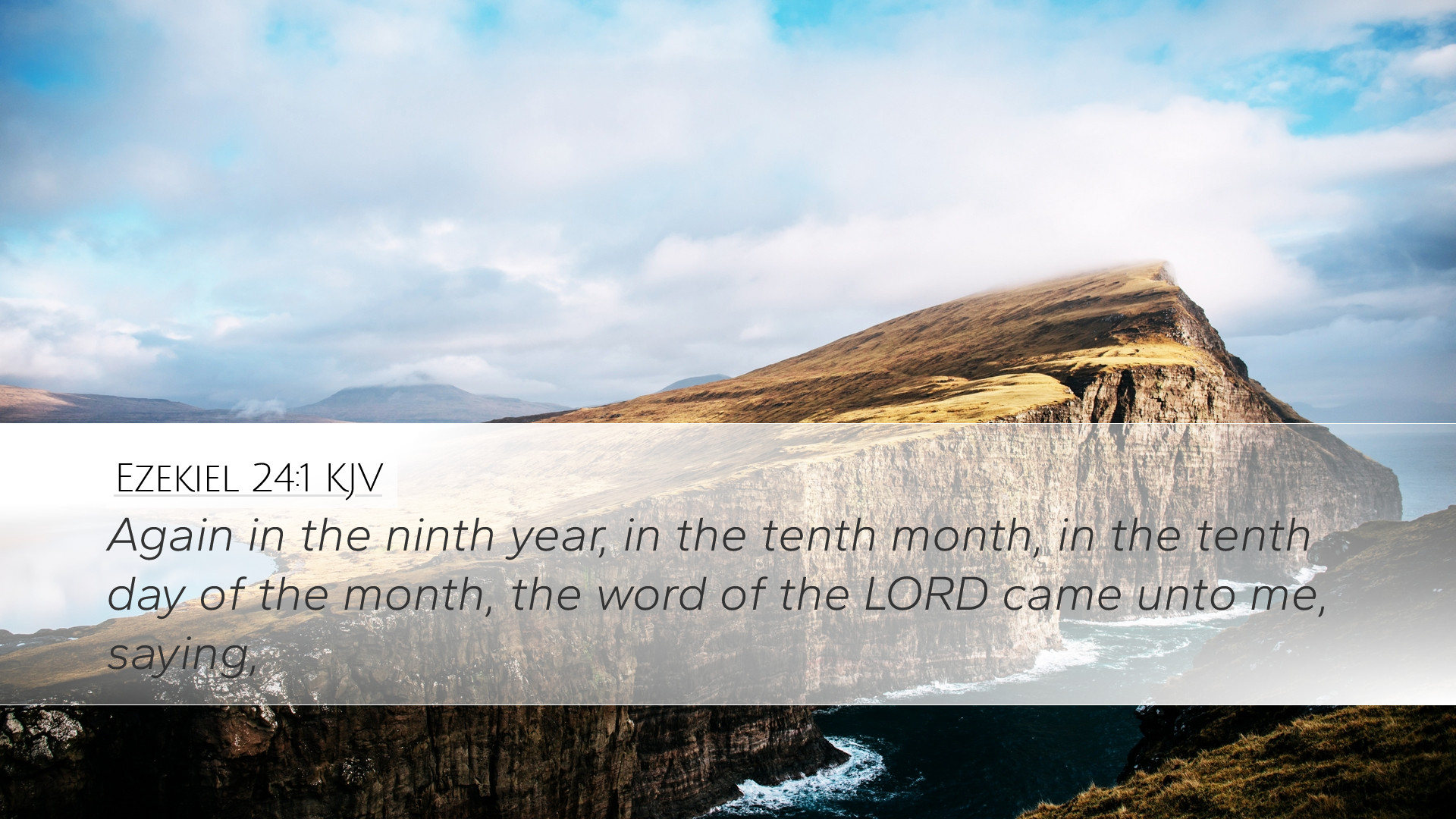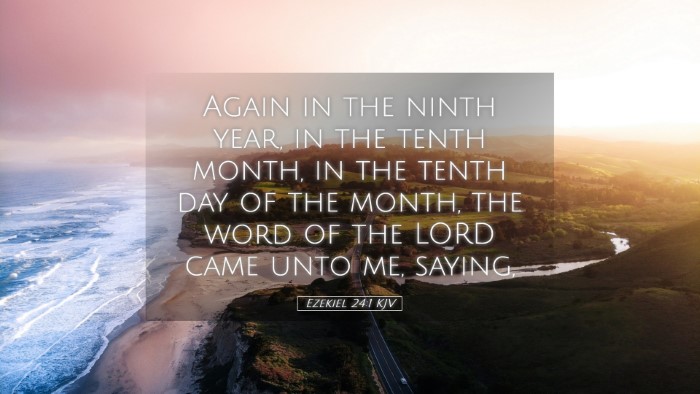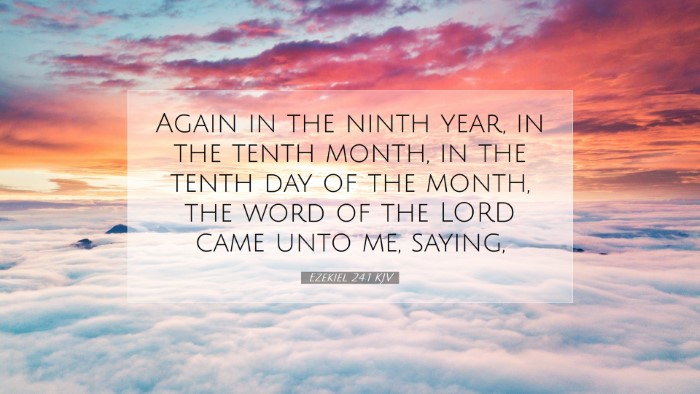Ezekiel 24:1 Commentary
The verse Ezekiel 24:1 states:
"Again in the ninth year, in the tenth month, on the tenth day of the month, the word of the Lord came to me, saying,"
Introduction
Ezekiel 24:1 serves as a critical juncture in the prophetic writings of the prophet Ezekiel. It marks a specific moment in the chronology of God's message to the people of Israel, emphasizing both the historical context and the divine mandate given to Ezekiel. This commentary synthesizes insights from notable public domain commentators to explore the significance, implications, and theological reflections on this verse.
Contextual Framework
In this passage, Ezekiel documents a precise date, which in itself communicates the serious nature of the prophecy and the urgency of God's message. Ezekiel, being in exile in Babylon, uses this stark date to underline the impending calamities awaiting Jerusalem and the consequences of Israel's disobedience.
Historical Context
The mention of "the ninth year, the tenth month, and the tenth day" corresponds to a significant point in history where the fall of Jerusalem was imminent. Here, it would be pertinent to note:
- Babylonian Politics: The geopolitical situation in Mesopotamia places Ezekiel amidst the tumult of Babylonian conquests and Israel's subjugation.
- Exilic Community: Ezekiel's audience comprises the Jewish exiles who are grappling with their identity and the prophecy of restoration.
- Religious Significance: The date symbolizes not only a marker of prophecy but the unfolding of God's judicial actions against His people.
Theological Insights
This verse engages with several theological themes relevant for pastors, scholars, and theologians.
Divine Communication
Matthew Henry notes that the phrase "the word of the Lord came" showcases the importance of divine revelation in scripture. These words emphasize that God is actively communicating with His people, despite their disobedience and spiritual blindness.
Judgment and Mercy
Albert Barnes offers an observation regarding this context wherein God's judgment is near. He underscores that while this passage speaks of impending disaster, it also holds the promise of restoration, which Ezekiel will subsequently articulate. This juxtaposition is essential in understanding God's character—He is a God of judgment but also of mercy.
Relevance for the Exilic Community
Adam Clarke emphasizes that for the Jewish exiles, this was a moment of hope and warning. It was crucial for them to understand that God had not abandoned them; rather, there would be repercussions for their infidelity. Clarke asserts that this underscored the necessity for repentance and recognition of their covenantal relationship with God.
Practical Applications
For contemporary church leaders and theologians, Ezekiel 24:1 provides a myriad of lessons and reflections.
- Listening to God: The importance of being attuned to God's word is paramount. Just as Ezekiel received messages, modern believers are encouraged to be receptive to God's guidance.
- The Weight of Prophetic Call: The seriousness of the prophetic office can be a reminder for pastors today of their responsibility towards their congregations and the truth they proclaim.
- Restoration After Judgment: The narrative of judgment followed by hope resonates through scripture. It reminds modern believers that, while sin carries consequences, God's ultimate plan is one of redemption.
Conclusion
Ezekiel 24:1 is not merely a historical note; it encapsulates the heart of God's communication with His people during a pivotal point in their history. The insights drawn from public domain commentaries highlight the seriousness of divine prophecy, the weight of God's word, and the dual themes of judgment and mercy that permeate scripture. It serves as a reminder for believers today to heed God's call, understand the gravity of their covenant relationship, and embrace the hope of redemption.


